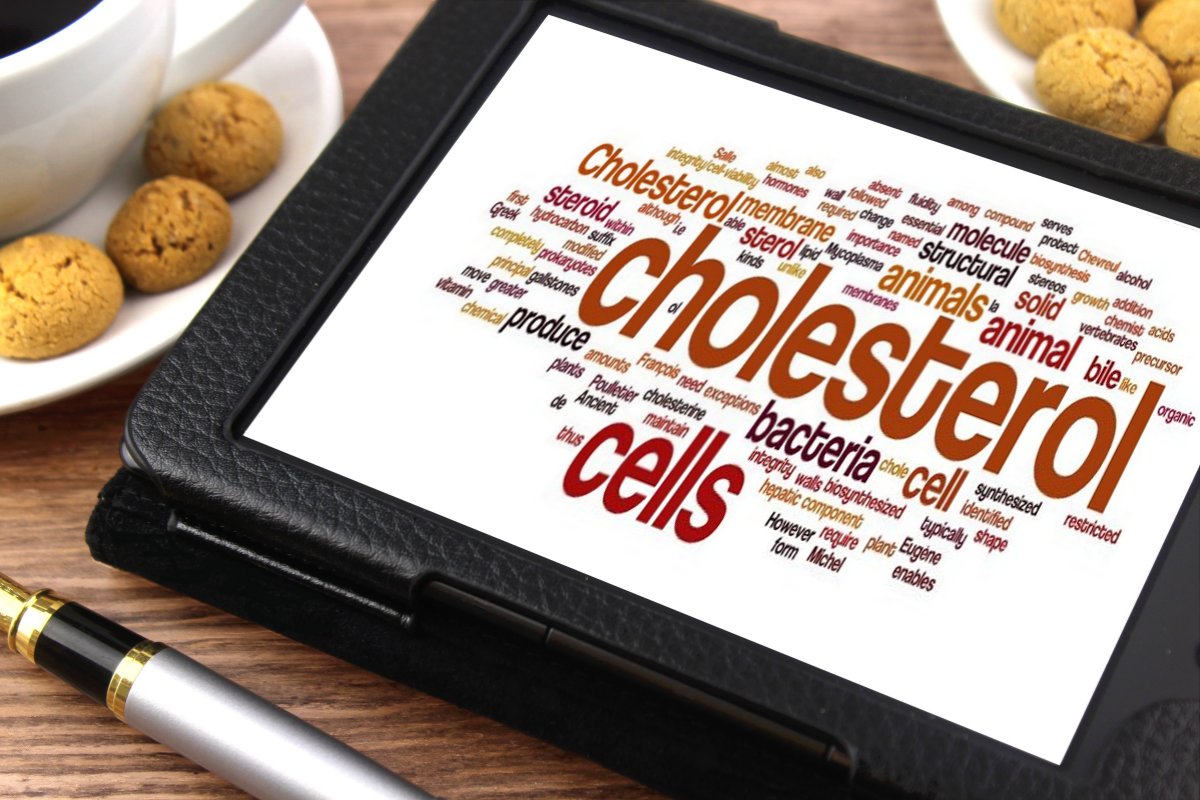What is cholesterol?
Cholesterol is a fatty/waxy substance produced by our body. Everyone has some. It is needed for good health. However, some individuals may have too of much cholesterol. And, individuals with high cholesterol may have a greater risk of strokes, heart attacks, and other ailments compared to those with less cholesterol. The higher your level of cholesterol is, the higher is your risk.
Are there different types of cholesterol?
Yes, there are a few different types. If you take a cholesterol test, your doctor might talk to you about:
- Total cholesterol
- LDL (Low-density lipoprotein) cholesterol – This is also called bad cholesterol. That’s because it can build-up plaque in your arteries increasing the risk of heart disease.
- HDL (High-density lipoprotein) cholesterol – HDL is also called good cholesterol. That’s because people with high HDL levels tend to have a lower risk of heart attacks, strokes, and other health problems.
- Non-HDL cholesterol – Non-HDL cholesterol is your total cholesterol minus your HDL cholesterol.
- Triglycerides – Triglycerides are not cholesterol. They are another type of fat. But they often get measured when cholesterol is measured. (Having high triglycerides also seems to increase the risk of heart attacks and strokes.)
What should my numbers be?
Talk to your doctor or nurse on what your cholesterol numbers should be. Different people need different goals. Generally, people with no heart ailments aim for:
- Total cholesterol below 200
- LDL cholesterol below 130 – or much lower, if they are at risk of heart attacks or Headache
- HDL cholesterol above 60
- Non-HDL cholesterol lower than 160, if they are at risk of heart attack or stroke
- Triglycerides below 150
Keep in mind, though, that many people who cannot meet these goals still have a low risk of heart attacks and strokes.
What should I do if my doctor tells me I have high cholesterol?
Ask your doctor what your overall risk of heart attacks and strokes is. High cholesterol, by itself, is not always a reason to worry. Having high cholesterol is just one of many things that can increase your risk of heart attacks and strokes. Other factors that increase your risk include:
- Cigarette smoking
- High blood pressure
- Having a parent, sister, or brother who got heart disease at a young age – Young, in this case, means younger than 55 for men and younger than 65 for women.
- A diet that is not heart healthy – A “heart-healthy” diet includes lots of fruits and vegetables, fiber, and healthy fats (like those found in fish and certain oils). It also means limiting sugar and unhealthy fats.
- Older age
If you are at high risk of heart attacks and strokes, having high cholesterol is a problem. On the contrary, if you are at low risk, high cholesterol may not lead to a treatment.
How do I reduce my High Cholesterol Levels?
You have to make a few lifestyle changes in order to keep your cholesterol levels in check. Following are a few suggestions
Should I take medicine to lower cholesterol?
Not everyone who has high cholesterol needs medicines. However, a medical practitioner or a doctor will decide whether you need medication based on your age, family history, and other health conditions.
You may have to take a statin, a cholesterol-lowering medicine if you:
- Already had a heart attack or stroke
- Have known heart disease
- Have diabetes
- Suffer from peripheral artery disease which occurs when arteries in your legs are clogged with fatty deposits. It makes it painful to walk
- Have an abdominal aortic aneurysm, which is a widening of the main artery in the belly
Most people with any of the conditions listed above should take a statin no matter what their cholesterol level is. If your doctor or nurse puts you on a statin, stay on it. Although it might not make you feel different, it at least helps in preventing heart attacks, strokes, and death.
Can I lower my cholesterol without medicines?
Yes, you can lower your cholesterol a little by:
- Eating heart-healthy foods: Reduce saturated fats found in fatty dairy milk products and red meat.
- Get rid of trans fats often found in bakery items like cookies, crackers, and cakes. Eat foods rich in omega-3 fatty acids found in fish, walnuts, and flaxseeds. Increase soluble fiber, such as oatmeal, sprouts, kidney beans, pears, and apples.
- Being more active: Increase your physical activity. Exercise, at least three days a week.
- Quit smoking: benefits of quitting smoking occur quickly. It improves your HDL “good” cholesterol level.
- Losing weight (if you are overweight): Carrying extra weight increases LDL “bad” cholesterol levels
Even if these steps do little to change your cholesterol, they can improve your health in many ways. However, if your doctor prescribes medication to lower your cholesterol levels, take the medication regularly while continuing with the above lifestyle modifications. This may help reduce the dosage of your medication.
You are recommended to take a comprehensive heart check-up, which includes lipid profile blood test at regular intervals, in order to avoid any cholesterol-related heart events.


















